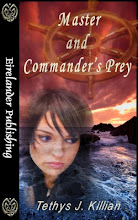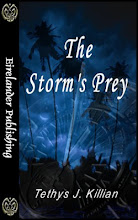One of the endearing qualities Rhett Butler captured and, quite frankly, never gave up was his ability to charmingly put Scarlett O'Hara in her place. Though he did spoil her more than she already was, the fact remained; he was a character who spoke his mind. He was always ready to come to the rescue of Scarlett (remember, heroes are heroic). This aspect of him made him real. He was also an alpha hero (technically, he is a bad boy archetype merged with a chief—can you see how those sixteen archetypes don't always work smoothly?).
Scarlett, an ingénue spoiled brat archetype, is the perfect opposite for him. In a way she is both protagonist and antagonist-as most ingénues are. She pines for her childhood sweetheart, Ashley Wilkes, causes more trouble for herself than even she is prepared to handle simply because tedium and she are cut-to-the-bone enemies and she's got a checkered past (she could have used a couple of crash courses in etiquette and decorum for the time period). Though, not necessarily a lovable character, she is an alpha heroine. Yes, an ingénue can be an alpha. She also 'owns' the story.
At the end of this story, the reader has followed Scarlett's journey (why she 'owns' the story) and have a feeling that Scarlett will always survive. The fact that Rhett leaves her, is not lost on anybody. Rhett wants the quieter, slower pace which he can't find with Scarlett. She has, in essence, worn him down to bare bones. Rhett knows to cut his losses, so he gets out. Both characters have grown to a new realization. Rhett's is down played, because he isn't the lead, but his is very different from where he started (hero's journey).
The fact that Rhett's change is downplayed shouldn't be taken as a misgiving by Ms. Mitchell. It should be taken as a stroke of genius. Alpha heroes, by definition, aren't sappy, whiny characters, and their changes are sometimes diluted to the point they look like window dressing. Ms. Mitchell created a character whom did change but maintained his alpha identity (clue in here – he retained his alpha identity).
So what does this have to do with heroes? Everything. Most changes in men are tamped down. They aren't obvious. Men are more clinical than they are expressive. They logistically think through something (depends on the guy, but it remains true – read Men are from Mars. Women are from Venus.)
We spend hours creating our characters. Some are extraordinarily easy to write, others make us pull out our hair. It makes little difference whether the character is alpha, beta or gamma, it is the job of the author to maintain their identity.
So many authors anymore buy into the part and parcel 'wisdom' of a few special organizations or authors who write books on 'how to write' that say – write this way or hit the highway. I don't partake of the banquet of rules. The one thing I don't appreciate is a character who loses their 'identity'. If you have a hero, make him heroic and hold his feet to the fire when it comes to who he is and who he will be.
Tell me, do you think heroes should be real? Should they be heroic? Should they always hold to their identity?
Until next time, cheers and happy writing,
T.J.





.jpg)
.jpg)






1 comment:
T.J., a fantastic post, and to use Rhett Butler as an example is a stroke of genius. Smile.
He must keep his identity. I may not have become a better writer, but I certainly understand men better, and I thought I already did after working them for so many years. Grin.
Sandy
Post a Comment